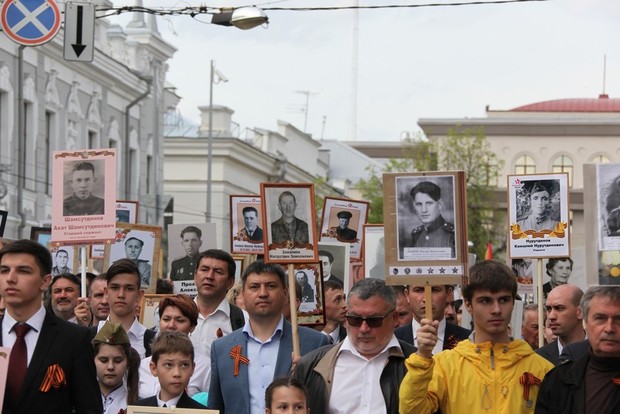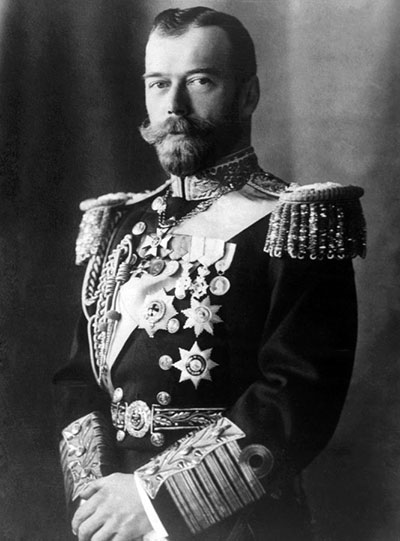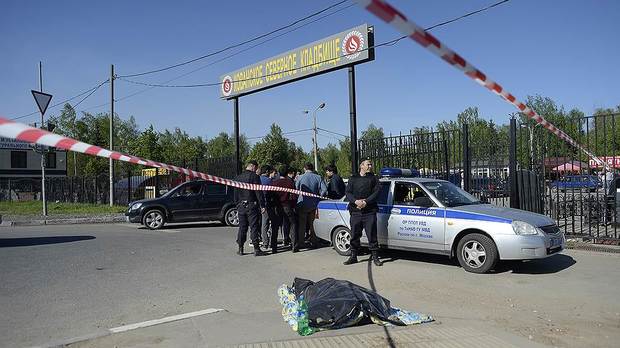Vsevolod Chaplin: ‘We should call a new elite in the power. And do not let them to bourgeoisify’
Why the gap between ‘the elites’ and the people in Russia is dangerous – the opinion of the famous orthodox priest and blogger
The gap between the people and those are enveloped by power, money and influence is huge in our country. The columnist of Realnoe Vremya protoiereus Vsevolod Chaplin in his new column written for our newspaper reflects upon Russian elites. According to the orthodox activist, the existing state between the upper and lower classes of society is quite dangerous. At the same time, he puts to a reader's judgement the suggestions that, according to the opinion of the priest, can reduce the gap and to avoid possible dangerous consequences.
Two peoples
The most urgent for Russia themes – the social politics, migration and ethnic relations – have not been developed yet during the pre-election debates. But whatever issue is raised – and they will be definitely raised, despite all attempts to 'mute' them – they will be refracted in the consciousness of the politicians and ordinary citizens through the prism of the relations between 'the elites' and ordinary people.
The tension between them is quite obvious. We can even speak of two peoples. One talks about the market fluctuations or contemporary art in the air of trendy semi-opposition TV channels. The other talks about the raising of the retirement age with anger in the kitchens and listen to the band 'Lyube'. One is afraid of any mass meetings of ordinary people — not just protest, any. The other participate in Immortal regiment. One sadly says: 'It's time to go… Where?'. The other – not without malice and often not sober: 'It's time to beat… Whom?'.

'One can even speak of two peoples. <> One is afraid of any mass meetings of ordinary people — not just protest, any. The other participate in Immortal regiment.' Photo: Mikhail Kozlovsky
By the way, such gap was in the late XIX – early XX centuries — before the revolution, which buried the hopes of the progressive and steady development of Russia — apparently, the most 'promising' empires of the time. So, today, in 2016, we need to clarify for ourselves and to learn one of the main lessons of not so distant past.
On 16 April, in the program 'Besogon TV' Nikita Mikhalkov said that there is 'a visible part of an iceberg, and there is an invisible one, that exists, works, teaches, works in the media, in leadership, in banks, in almost all spheres of our life — those bookmarks of a quiet existence up to a certain time — but, nevertheless, giving that poisonous signal, giving food for thought: why do we need a big country, why do we need to be one people, why don't we split up, isn't it better to be without Moscow? And this work is going on'.
Whom the elites are afraid of?
I often wrote that the most dangerous opposition today is in the corridors of the power. This is an opposition not only to Putin — to Russia itself. Mikhalkov is right, it is quiet: it does not go to meetings, does not act in the 'alternative' media, does not argue with the leadership.
But the silence is deceptive. Too many people constantly look to the West, they understand that it is unlikely that it will leave Russia alone, and think through 'plan B'. The other day I was talking to a very intelligent man, who was in several hot spots, including the Donbass. We talked about what will happen if the Western elites try to repeat the scenario of 1917 in Russia.

'The same thing will be, father,' he said after a minute of thinking. 'Betrayal, cowardice and deception' as Nicholas II said after he abdicated. We all will be dumped, as Novorossiya has been dumped. And Putin will be dumped – as Nicolas was.
It is true, many, really many in our elites — especially those who have property, money and family abroad — most of all they are afraid not of its own people (whom they sometimes just despise) but the real quarrel with the Western ruling circles. From their own people and even from Putin they will have time to escape, if it will be needed.
But there where they will run away they can easily be taken everything away. They can even be put in prison for many years, as it was with 'disloyal' politicians and businesspersons from several countries, deprived of real independence after the colour revolutions and different versions of 'springs' suddenly followed by a hungry and fierce winter — and it is not bad because in some places it was a hot bloody summer.
New people
Seeing all this, an official and an entrepreneur decides for himself: the main thing — not to quarrel with the world power. Even if for that they will have to sabotage the decisions of the authorities of their own country, and at the same time to defy the will of their own people. Most people who think so, — they are not foreigners and not unorthodox, sometimes not even Muscovites or Petersburgers, but natives of Russian provinces, who, by the way, twenty years ago with enthusiasm 'shook down' the remains of their homes, moved to the capital, and ten years ago — tasted the joy of 'real' life in the Italian and French villas. Spiritually they are no longer 'ours'. The words of the gospel are quite applicable to them: 'Where your treasure is, there your heart will be also' (Matt. 6, 21).

'It is the ethnic tensions, the gaps in the migration policy (which recently came to the light again at Khovansky cemetery) and the unfair social divide, which are acceptable for the mentioned 'elites' but causing discontent among the people — yet silent.' Photo: kommersant.ru
It means that we need to call upon the power of new elites, what I have long called for. And do not let them to 'bourgeoisify', reviving usual for the Russian Empire and the Soviet Union 'meritocracy' in the best sense of the term — that is, the dependence of the government opportunities and social status not on money or political manipulations but on obvious contribution to society. The alternative is the stagnation of the potentially treacherous layer, which is fraught with repeat of 1917.
And, of course, we need to do everything for the concreting with right solutions of those breaks, in which the Russian statehood may fall today. And it is the ethnic tensions, the gaps in the migration policy (which recently came to the light again at Khovansky cemetery) and the unfair social divide, which are acceptable for the mentioned 'elites' but causing discontent among the people — yet silent. God forbid, orange lava would pour through these cracks. It means they should not exist — they will not disappear by talking the problems away and 'removing the themes' before the elections.
Photo of Nicholas II: nikolai2.ru
Reference
Vsevolod Anatolyevich Chaplin – the priest of the Russian Orthodox Church, protoiereus; rector of St. Nicholas on the Three Hills Church, Moscow. Candidate of Theology.
- He was born in 1968 in Moscow to the family of a professor Anatoly Chaplin.
- After he finished secondary education in 1985, he joined the staff of the Publishing Department of the Moscow Patriarchate. He entered the Moscow Theological Seminary, graduating in 1990.
- From October 1990 to March 2009, he was in the Department for External Church Relations (DECR) of the Moscow Patriarchate.
- He was elevated to archpriest in 1999.
- From 2009 to 2015 – chairman of synodal department for the Cooperation of Church and Society of the Moscow Patriarchate.
- A presenter of the programme Vremya Doveriya on Radio Komsomolskaya Pravda. Constantly published in the newspaper Rus Derzhavnaya.
- The author of several fictions under the pseudonym Aaron Chamier.